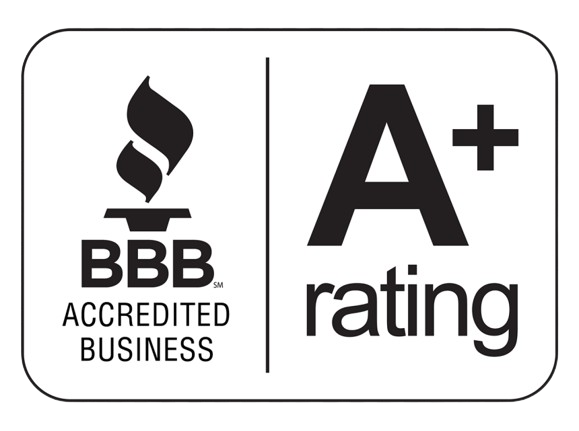
Moving can be daunting, and entrusting your belongings to a moving company involves a significant level of trust. Unfortunately, accidents and damages can still occur during the moving process. If your items arrive at your new home in a damaged state, you might wonder if “Can you sue a Moving Company for damages?”
Understanding the Contract
Most moving companies require you to sign a contract before they begin their services. This contract outlines the terms and conditions of the move, including the company’s liability for damages. It’s essential to carefully review this contract before signing, as it will often detail the extent of the moving company’s responsibility for any losses.
Establishing Negligence
To pursue legal action against a moving company, you typically need to establish negligence on their part. This means proving that the company failed to exercise the reasonable care that a competent moving company would under similar circumstances. For instance, if your items were not properly packed or secured, resulting in damage, this could be considered negligence or breach of contract.
Filing a Claim with the Moving Company
If your belongings have been damaged during the move, the first step is to file a claim with the moving company. This often involves providing evidence of the damage, such as photographs and an inventory list of the affected items. The moving company in question will then review your claim and determine the appropriate action.
Small Claims Court
If your claim with the moving company is denied or not satisfactorily resolved, consider taking the matter to small claims court. Small claims court is designed for resolving disputes involving relatively small amounts of money for liability for loss. It provides a relatively quick and straightforward process for individuals seeking compensation for damages.
Hiring an Attorney
While small claims court is accessible without an attorney, hiring a lawyer with experience in property damage, expensive item, and high-value items cases can provide you with valuable legal expertise. They can guide you through the process, help you understand your rights, and ensure you present a strong case.
Alternative Dispute Resolution (ADR)
Some moving companies include arbitration or mediation clauses in their contracts. Instead of going to court, you’ll need to resolve the dispute through alternative means. ADR can be less adversarial and time-consuming than traditional litigation.
Insurance Coverage
Before moving, it’s essential to inquire about the types of insurance coverage and insurance providers the moving company offers. Some companies provide a basic range as part of their services. In contrast, others offer additional coverage options for an extra fee. Understanding your insurance coverage can help determine how to proceed in case of damages.
Documenting Damages
To strengthen your case of potential claims, document the damages thoroughly. Take clear photographs of the damaged items and damage to property from various angles. Keep copies of any correspondence with the moving company and records of your claim.
Gathering Evidence
Collect all relevant evidence that supports your claim. This might include receipts for damaged items, the moving contract, photographs, and any written communication with the moving companies Mape Ridge.
Calculating Damages
Calculate the value of the damages you’ve incurred. This can include repairing or replacing damaged items and any additional expenses related to the injury.
Negotiating a Settlement
Before pursuing legal action, consider negotiating a settlement with the moving company. Many disputes can be resolved through negotiation, potentially saving you time and stress.
Taking Legal Action
If all else fails, and you believe you have a strong case, you can take legal action against the moving company. Consult with your attorney to determine the best course of action based on the specifics of your situation for contract breach and contract claim.
Conclusion
The decision to sue a moving company for damages is complex and depends on various factors. While it is possible to pursue legal action and legal services against a moving company if your belongings are damaged during the moving process, it is crucial to consider several vital aspects before proceeding. These include carefully reviewing the terms of the moving contract, documenting evidence of the damages, and assessing the extent of your losses. Additionally, consulting with legal professionals experienced in contract law and personal property damage can provide valuable guidance on the viability of your case and the potential outcomes. Remember that the legal process can be time-consuming and resource-intensive, so weighing the potential benefits against the potential costs before deciding is essential. Ultimately, a well-informed and thoughtful approach will help you determine the best action to seek compensation for damages caused by a moving company.
Say Goodbye to Moving Woes – Embrace Gorilla Moves!
Don’t let the fear of damage ruin your excitement about moving. You can bid farewell to those worries with Gorilla Moves by your side. Our dedicated professionals take pride in safeguarding your belongings so you can focus on your new adventure without ever wondering if you can sue a moving company for damages. Contact us Now!
FAQs: Can You Sue a Moving Company for Damages
What should I do if I discover damages after the move is complete?
If you notice cracks after the move, it’s important to document them immediately. Take clear photos of the damaged items and their condition, and make a detailed list of the damages. This evidence will be crucial if you decide to pursue legal action.
Can I sue if the moving company provided insurance coverage?
If the moving company offered insurance coverage as part of your contract, you should review their claims process first. However, if the insurance claim process doesn’t adequately compensate you for your losses, you might still have the option to sue for additional damages.
What factors are essential in a successful lawsuit against a moving company?
Successful cases against moving companies often hinge on factors such as proving negligence on the company’s part, demonstrating that the damage occurred due to their actions or inactions, and having substantial evidence to support your claims. Consulting with legal experts can help you assess the strength of your case.
Should I consider alternative dispute resolution methods before suing?
Before going to court, consider alternative methods such as negotiation, mediation, or arbitration. These methods often lead to faster resolutions and may be less costly than a full-blown lawsuit. However, if these methods fail to provide a satisfactory answer, pursuing legal action might be the next step.







